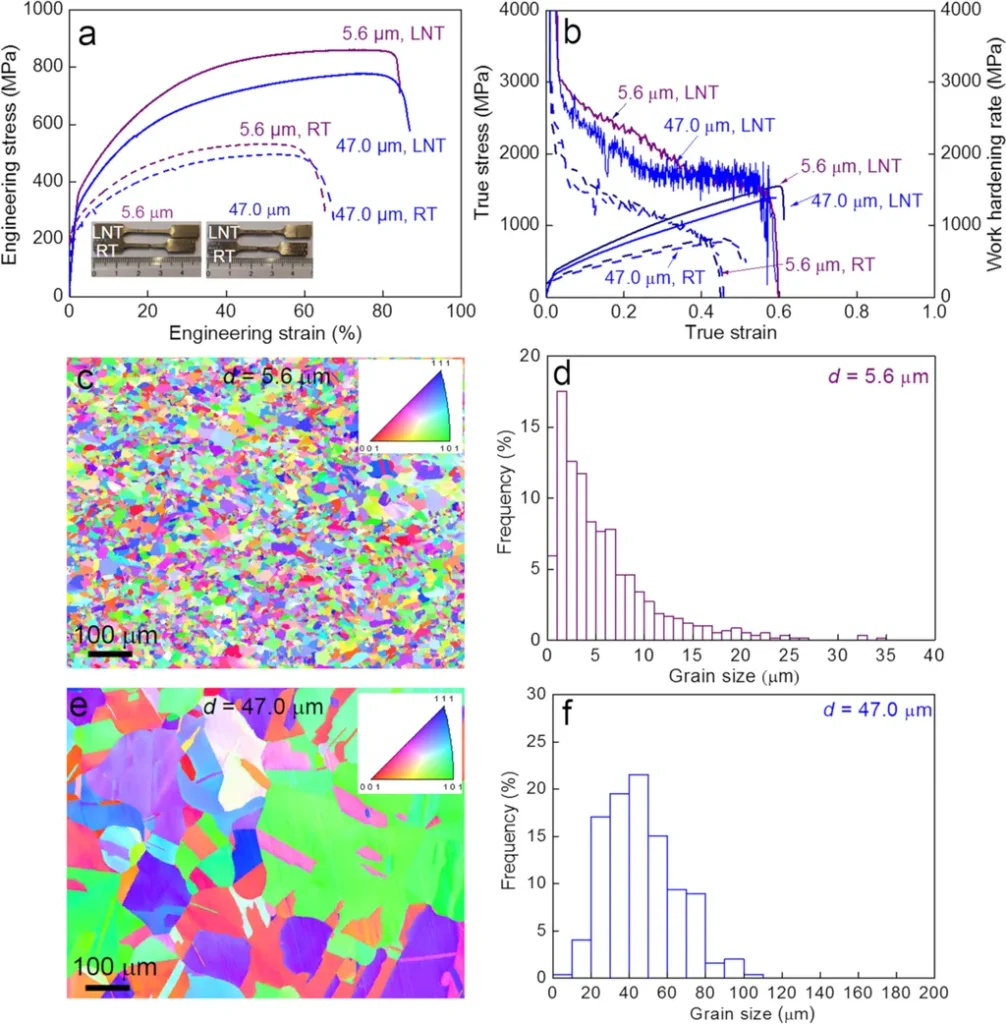In a groundbreaking development poised to reshape the steel industry, researchers have discovered a novel method to enhance the toughness of high-carbon nano-bainitic steel without compromising its strength. This innovation, published in the journal *Materials Research Letters* (translated as *Materials Research Letters*), could have significant implications for the energy sector, where robust and durable materials are paramount.
The study, led by Xiaojun Gao of the National Engineering Research Center for Equipment and Technology of Cold Strip Rolling at Yanshan University in China, introduces a shallow cryogenic treatment process. This technique induces lattice shrinkage in the steel through cryogenic contraction stress, facilitating the diffusion of carbon atoms in bainitic ferrite and reducing the dissolved carbon content within the matrix. The result is a substantial improvement in material toughness, with impact toughness increasing by approximately 70% and fracture toughness by around 12%.
“Traditionally, enhancing the toughness of steel often comes at the expense of its strength,” explains Gao. “However, our approach not only maintains the steel’s strength but significantly boosts its toughness, offering a novel solution to a longstanding challenge in the industry.”
The implications for the energy sector are profound. Steel is a critical material in the construction of pipelines, drilling equipment, and other infrastructure that must withstand extreme conditions. The enhanced toughness of nano-bainitic steel could lead to more durable and reliable components, reducing maintenance costs and improving safety.
“This research opens up new possibilities for the development of advanced materials tailored to the specific needs of the energy industry,” says Gao. “By improving the toughness of steel, we can enhance the performance and longevity of critical infrastructure, ultimately contributing to more efficient and sustainable energy production.”
The study’s findings suggest that shallow cryogenic treatment could become a standard practice in the steel industry, offering a cost-effective and efficient way to produce high-performance materials. As the energy sector continues to evolve, the demand for robust and durable materials will only grow, making this research particularly timely and relevant.
In the broader context, this innovation highlights the potential of advanced materials science to drive progress in various industries. By pushing the boundaries of what is possible, researchers like Gao are paving the way for a future where materials are not only stronger but also more adaptable to the challenges of tomorrow.
As the energy sector looks to the future, the enhanced toughness of nano-bainitic steel could play a pivotal role in shaping the infrastructure of tomorrow. With further research and development, this breakthrough could lead to even more advanced materials, ultimately benefiting industries beyond energy and contributing to a more sustainable and resilient world.

